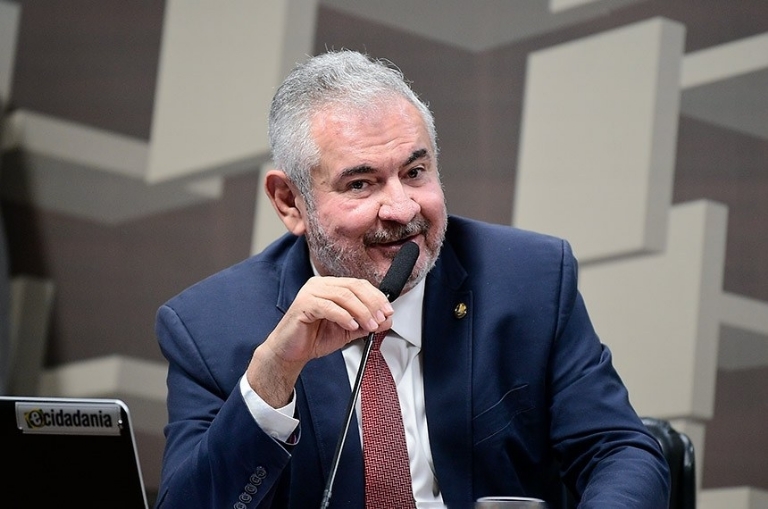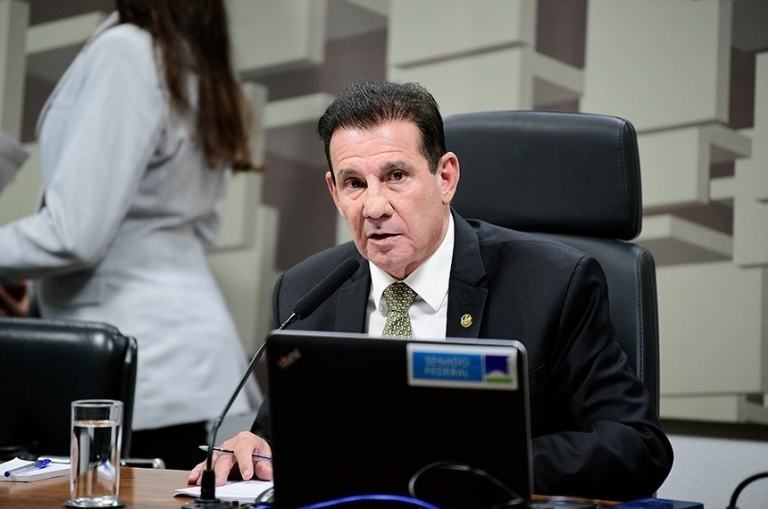

Bettors will pay 15% income tax on prizes obtained. The amount will only be charged on prizes higher than the first range of the annual progressive tax table, currently worth R$2,112 (US$ 433). The agenda now goes to the Senate plenary for a vote.
The 18% rate for companies was defended by the government of President Luiz Inácio Lula da Silva (PT), which included this project in the package to increase revenue and meet the fiscal target of zero deficit in public accounts in 2024. Initially, the estimated to raise R$2 billion (US$ 410m) next year by taxing sports betting.
The text defines that the 12% tax be applied to legal entities that explore development activities or provide services related to fantasy sport, an electronic modality in which disputes occur in a virtual environment based on the performance of real people. Angelo Coronel also included in the text the requirement for a foreign operator to have a Brazilian partner holding at least 20% of the company's share capital, to operate in Brazil.
The text was approved by the Senate Sports Committee, also with the provision that this type of bet –
fantasy sport - does not constitute the exploitation of a lottery modality, without authorization from public authorities.
The Bill received opposing votes from several senators, such as Eduardo Girão (Novo-CE) and Carlos Portinho (PL-RJ). Already approved by the Chamber of Deputies, the proposal is part of the Lula government's package to reach zero in 2024.

According to the text, the fixed odds bet includes virtual online gaming events and real sports-themed events, such as football and volleyball. In this modality, the bettor wins if he correctly matches any
condition of the game or the final result of the match.
In the Senate, the proposal was approved by the Sports Committee on November 8th in the form of a
report by Senator Romário (PL-RJ). He had maintained the 18% rate on the companies' gross revenue
obtained from games (subtracting the prizes paid to bettors). The rapporteur changed, however, the
allocation of resources collected from taxation to include the Ministry of Health and civil society entities.
Senator Romário also maintained the collection of up to R$30 million (US$ 6.15m) as a grant for sites that want to operate in Brazil, but changed the term from 3 to 5 years. Angelo Coronel agreed to the 5-year term.
According to the proposition, bets can be placed physically, through the purchase of printed tickets, or
virtually, through access to electronic channels. The authorization act must specify whether the operating agent can act in just one or both modes.
The project also deals with fantasy sport — an electronic modality in which disputes take place in a virtual environment based on the performance of real people. According to the text, this type of bet does not constitute the exploitation of a lottery modality and is exempt from authorization from the public authorities. Companies that explore development activities or provide services related to fantasy sport are subject to a social contribution of 12% on profit.

Distribution of money
An amendment accepted by the rapporteur changes the way in which revenue from fixed-odd betting
lotteries is distributed in physical or virtual media. According to the text, 88% goes towards funding and maintenance expenses for the lottery operating agent and other betting games. The remaining 12% is
distributed according to the following percentages:
36% for sport, being:
28% for tourism, being:
14% for public safety, being:
10% for education, being:
10% social security;
1% for the Ministry of Health to apply to measures to prevent, control and mitigate social harm arising from gaming in healthcare areas;
0.5% for the following civil society entities:
0.5% to the Fund for the Equipment and Operationalization of Core Activities of the Federal Police (Funapol).
States and DF
Senator Angelo Coronel included 22 amendments to the original text. One of them includes a specific chapter on the exploitation of lotteries by the states and the Federal District. According to the change, the rule only applies to lottery modalities provided for in federal legislation.
According to the amendment, the operation of lotteries by states and the Federal District can be carried out through concession, permission, authorization or specific regulation, in compliance with federal legislation. The same economic group or legal entity can have only one concession and in only one state or the Federal District.
Lottery sales and advertising by states or the Federal District — carried out in physical, electronic or virtual media — must be restricted to people who are or live in the territory of each entity. “Multijurisdictional exploitation” of the service is prohibited. States and the Federal District must account for the resources applied to the respective courts of auditors.
In another amendment, the rapporteur prohibits the organization of bets on sporting events involving youth categories or underage athletes in any sporting modality. The rapporteur also included a provision that prohibits placing bets by a person diagnosed with ludopathy.
Angelo Coronel also set a 15% income tax rate on net prizes obtained from bets on the fixed-odd betting lottery. The amount will only be charged on premiums higher than the first range of the annual progressive tax table (R$ 2,112).
Another amendment incorporated by the rapporteur allows Caixa Econômica Federal and lottery licensees to be accredited to operate fixed-odd bets. In the case of lotteries, bets can only be placed physically.
Unclaimed Prizes
The bettor loses the right to receive the prize or request a refund if the payment due is not credited to the graphical account maintained by the operator. In addition, it prescribes the prize not claimed by the bettor within 90 days from the date of publication of the result of the event subject to the bet.
An amendment presented by the CAE rapporteur, senator Angelo Coronel, establishes the fate of unclaimed prizes. Half goes to the Student Financing Fund and half goes to the National Fund for Public
Calamities, Protection and Civil Defense (Funcap). Of the total allocated to Fies, at least 10% must benefit students from rural populations, original peoples, including indigenous people, and ‘quilombolas’ (Afro-Brazilian resident of quilombo settlements first established by escaped slaves in the country).
Authorization
Bill 3,626/2023 requires authorization from the Ministry of Finance for the company that operates the fixed odds betting system. The authorization is valid for five years and can be reviewed at any time, ensuring the adversarial process and full defense of the interested party. Only legal entities that meet certain requirements can be authorized, such as:
An amendment suggested by the rapporteur included a new criterion for the company's qualification:
having a Brazilian as a partner holding at least 20% of the share capital. “The regulation of the fixed-odd betting market also needs to be an opportunity to create jobs and encourage the participation of Brazilian companies. In this sense, we offer an amendment to guarantee the participation of Brazilian shareholders in the composition of companies operating in the sector,” he argues.
Furthermore, the controlling partner or shareholder cannot hold direct or indirect participation in a football corporation or professional sports organization. He is also prevented from acting as manager of a Brazilian sports team or financial institutions that process fixed-odd bets.
The administrative authorization procedure must be processed electronically. During the analysis, access to the process is restricted to the interested party and the representative. Authorization is only issued if, after examining the documentation, the Ministry of Finance concludes that the company has technical and financial capacity and the reputation and knowledge of controllers and administrators. Companies must pay a consideration limited to R$30 million.
Advertising
The electronic channels and physical establishments used by the operating agent must display, in an
easy-to-view location, data such as:
The communication and advertising actions of the betting lottery, carried out by the operating agents, must publish warnings discouraging gambling and warning about its harm, in addition to observing the
restrictions on broadcast times and channels. Advertising that presents the bet as socially attractive or that contains statements from well-known personalities that suggest that the game contributes to social or personal success is prohibited.
The dissemination of unfounded statements about the chances of winning or that suggest that the bet could constitute an alternative job, solution to financial problems or form of financial investment is also prohibited. The text also prohibits the operating agent from acquiring rights to sporting events for any form of display of sounds and images.
Integrity
Bill 3,626/2023 provides for actions to mitigate match-fixing and corruption in sporting events subject to fixed-odd betting broadcast live. Bets proven to be made through fraud are considered void.
Bettors' resources cannot be given as collateral for debts assumed by the betting operating company. Furthermore, the operating agent must adopt identification procedures that allow the validity of the
bettors' identity to be verified.
The text also provides a list of those prohibited from placing bets:
Penalties
Any infractions must be investigated through an administrative process, with penalties imposed on the operating agents. They range from warnings to fines, limited to 20% of the proceeds collected. According to the text, the fine cannot be less than the advantage obtained by the offender and not more than R$2 billion per infraction. Among the penalties imposed, the following may occur:
In the case of other individuals or legal entities, when it is not possible to use the criterion of the revenue collected in the case of fines, they can vary from R$50 thousand to R$2 billion. The Ministry of Finance may stop initiating or suspend administrative proceedings to investigate the infraction, if the person under investigation ceases the practice under investigation and corrects the irregularities identified.
Source: GMB